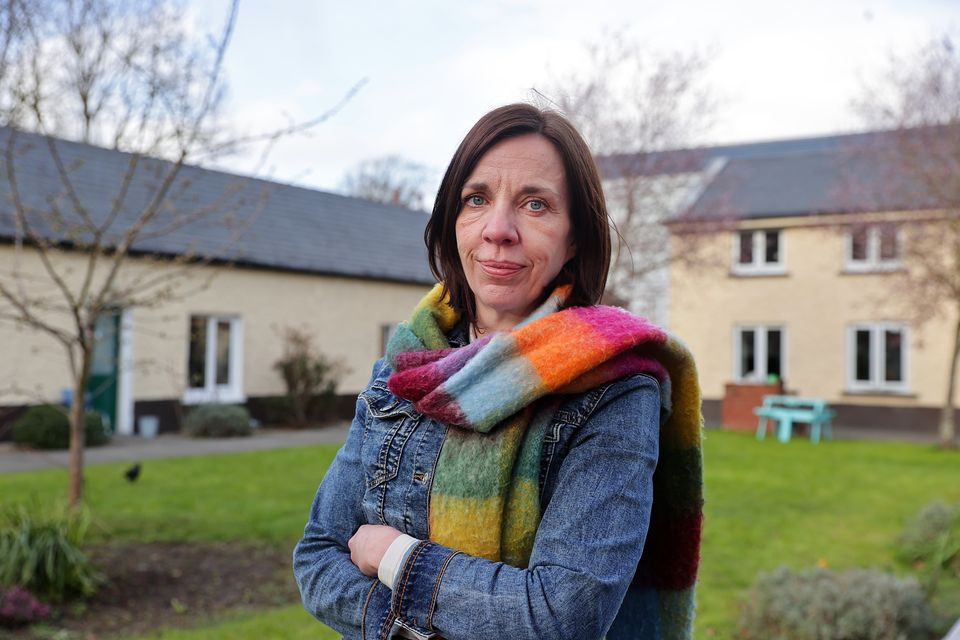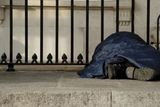Mothers with addictions fear their children will be put into care if they seek help
Experts warn the stimgatisation of women living with addiction must stop
Pauline McKeown, CEO of the Coolmine centre, pictured at Ashleigh House. Photo: Gerry Mooney
Mothers suffering addiction fear they risk losing their children to the care system if they access rehab.
Pauline McKeown, CEO of Coolmine drug and alcohol treatment centre in Dublin, is raising awareness about young mothers battling these addictions being unwilling to roll the dice with their children’s futures.
Ms McKeown said society’s “stigmatisation of mothers living with addiction has to stop”.
The fear of losing a child to care means some mothers never even attempt to access rehab, and their family’s future is uncertain.
“Women have a fear of seeking support for addiction because society judges them for having an addiction and they’re judged even more if they’re a mother with an addiction,” Ms McKeown said.
“There’s a fear that if they seek help, their child or children could be taken away from them.
“It’s a fear, but it can happen. Last year, we worked with 111 women who made it into our service. Eighty per cent were mothers. Of that 80pc, all have had children in foster care.”
Ashleigh House in Coolmine offers a women and children’s residential service. This is also available at Westbourne House in Limerick and is proving invaluable to mothers on a journey to recovery.
The centres help keep children with their mothers while they receive support and treatment.
Ms McKeown believes having their children with them helps the women on the path to recovery.
“Women come to Ashleigh House or Westbourne House and we try to dismantle all the barriers and judgment that exists,” Ms McKeown said.
Read more
“Women may be pregnant. This may be their second or third pregnancy and if there are other children, the chances are they will have had a care experience.
“These women have already come from backgrounds where they have multiple traumas.
“They’re often homeless and hidden away in that environment. The one thing that gives them some grain of stability is being a mother and the unconditional love of their child or children.”
Ms McKeown said that while men who recovered were “often able to start careers and their own businesses successfully”, there was “still a lack of progress on a pathway into careers for women” after recovery.
Since the pandemic, there has been a rise in the use of a drug more than familiar to many of us – alcohol. Among the young women who attend Coolmine, the most popular drugs of choice before rehab were alcohol and benzodiazepines.
Alcohol became an increasingly prevalent issue for some women faced with isolation and trauma during the pandemic.
“Most of the women we see are in their 20s and 30s,” Ms McKeown said.
“Most are addicted to alcohol, which is more acceptable and normalised than heroin or benzodiazepine.”
Far too often, motherhood, rather than being a joyful milestone, becomes a millstone for women afraid of attempting to ask for help.
In January, the final report from the Citizens’ Assembly provided 36 recommendations for the Oireachtas, including calling on the Government to provide leadership and accountability on drug use in Ireland and the provision of a cabinet committee chaired by the Taoiseach.
The assembly recommended a health-led approach from the State, rather than a criminal justice response.
“It’s really sad that in today’s terms, there’s a referendum on women in the home and actually, women who are struggling with addiction are in homelessness, have addictions and are pregnant with addictions,” Ms McKeown said.
“Women are still treated and judged in a way that’s second class to men.
“Things have improved for women in Ireland in the last 50 years to a degree – but only if they’ve got resources, or if they haven’t had exposure to many challenges in their life.
“Coming from a home with deprivation, from areas where there were fewer expectations, or if a woman didn’t have access to education and stability, the story’s very different.”
This year, so far, the facility is working with 36 women – and there are 25 children being cared for.
The family-based service at Ashleigh House looks after children up to the age of five.
Trained child carers are at the heart of the wraparound approach.
Join the Irish Independent WhatsApp channel
Stay up to date with all the latest news










